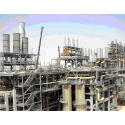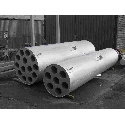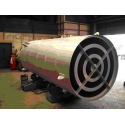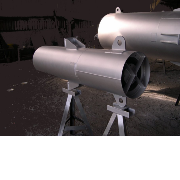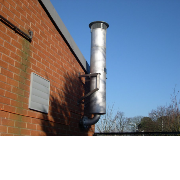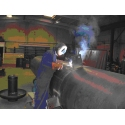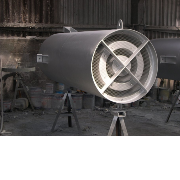Blocking vs. absorbing sound
3 October 2023Staying in a noisy area for too long can cause damage to your hearing. If the noise levels are high enough, even a short amount of exposure can be detrimental. The best thing to do is install the right equipment to keep things as quiet as possible. We can help by providing the finest attenuators on the market.
When it comes to reducing noise, you must know the difference between absorbing and blocking sound. That is what we want to discuss here.
Blocking
Heavy massive materials, in a relative sense, get employed for blocking sound. Examples include concrete block and gypsum board in the construction industry. The sound waves physically can’t enter the material, so it can block it.
Sound can move through materials
If people have concerns about noise, they often ask if they can simply add some acoustic panels to their walls. It is critical to realise that porous absorbers can’t block sound. By definition, they have several compact interconnected voids that sound moves through.
Open-cell foam and fibreglass are examples. The sound wave loses energy via friction between the fibres/void walls and air particles of the material it is moving through. If a sound wave is able to pass into a material, it is also able to pass through. Thus, it is incapable of effectively blocking sound.
Sound absorbing mechanisms are utilised to lower noise within a space. They are able to lower the echoes, reverberation time, or stop the focusing of sound that is reflected from curved exteriors.
Batt insulation
So, why does batt insulation within a gypsum board partition enhance the sound blocking capabilities? The reason why is that you can reduce the sound that passes through the initial layer of gypsum board. It can do this by absorbing a bit of its energy before it is able to reach the second board. The batt insulation is still working as a sound absorber rather than a sound blocker.
Solutions like these can work in an office setting. For an industrial complex however, you will need to take a different approach. With a sound attenuator, you can meet your noise level requirements. They will absorb the noise and protect people in the area.
Speak to us about attenuators
At Ventx, we have aided many clients with their noise reduction efforts. With the right solutions, they can make their facilities more suitable to work in. At the same time, they can meet the UK environmental standards for noise pollution.
So, if you need our attenuators, please get in touch. We’d be happy to design one for you.


